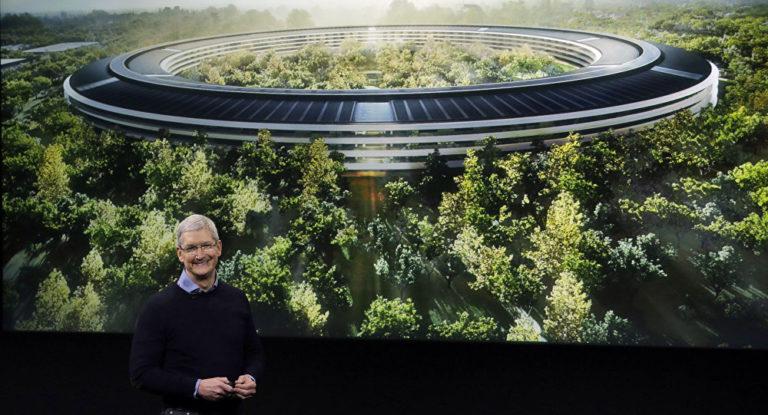It seems as the US tax system is fundamentally broken if Apple can value a billion dollars in buildings at roughly $200. Tax avoidance by multinationals has significantly exacerbated the global wealth gap and put excessive burdens on local governments. It seems like Silicon Valley, and mainly Apple, are not paying their fair share of taxes.
Silicon Valley’s largest and most iconic companies are employing armies of lawyers to show that their buildings are worth a lot less than what county tax assessors state.
In Santa Clara County, California, Apple Inc., the United States’ first trillion-dollar company by market capitalization, had 489 open cases dating back to 2004, disputing nearly $8.5 billion in property value, according to the San Francisco Chronicle.
The report notes that Apple is the largest taxpayer in the county, spending $56 million in the tax year 2017-18.
The company has had a long history of tax avoidance. In 2016, the European Union slapped Apple with a $15 billion European tax evasion fine, CEO Tim Cook wrote in an open letter that “in every country where we operate, Apple follows the law and we pay all the taxes we owe.”
As a whole, Santa Clara County has a shocking $76 billion in disputed assessments stemming from property valuations. More than half of the disputes are from ten tech companies, including Apple, Google, Applied Materials and Sun Microsystems.
Tax assessors told the San Francisco Chronicle that, for instance, Applied Materials has 94 appeals totaling $6.1 billion in disputed value and Google has 132 appeals covering $2.7 billion in disputed value.
“These are major cases, and publicly, they kind of go under the radar screen,” said Santa Clara County Assessor Larry Stone, whose office has settled multimillion cases with IBM and Cisco over tax assessments. “How much will a company pay in attorneys’ fees and expert witnesses for a potential payday of $100 million? They’ve spent millions, but there’s millions at stake.”
“The source of many of the disagreements is high-tech equipment, which is more complicated to assess because of complex depreciation rules,” Stone said
“The sophistication of our companies and the complexity of our high-tech industries is different,” Stone added. “Machinery, equipment, computers, fixtures … all the stuff going into (the) Apple spaceship, there’s lots of money inside of it aside from land and buildings. So it can get very complicated.
In one appeal filed in 2015, Apple said its Apple Park in Cupertino was worth only $200, while tax assessors valued the buildings at $1 billion.
According to an appeal application, tax assessors valued another property at $384 million, and in Apple’s view, this one was also worth around $200.
Tax assessors told the local paper that large corporations flushed with cash from Trump’s new tax cut had erected armies of lawyers to wear down county governments.
“The megacorporations have enough resources and money to wear a county down to lower their taxes by appealing, appealing, appealing,” said Gus Kramer, Contra Costa County Tax Assessor.
Apple was a vocal supporter of the GOP tax cuts passed last year that lowered corporate tax rates. The company gained tremendous wealth through lowered repatriation rates that allow it to bring assets from overseas back to the US at a lower tax rate. Since the tax cut, Apple increased the compensation of CEO Tim Cook along with the company’s other top executives and unleashed a $100 billion in stock buybacks.
















